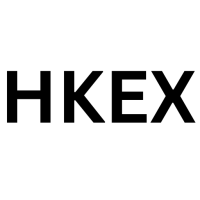Summary
Cut through the green tape
We don't push agendas. At Net Zero Compare, we cut through the hype and fear to deliver the straightforward facts you need for making informed decisions on green products and services. Whether motivated by compliance, customer demands, or a real passion for the environment, you’re welcome here. We provide reliable information—why you seek it is not our concern.
Details
- Hong Kong
Deep dive
Introduction
The Hong Kong Stock Exchange (HKEX) introduced enhanced climate disclosure requirements effective 1 January 2025, marking a significant step in aligning with global sustainability standards. These rules, rooted in the IFRS S2 Climate-related Disclosures and IFRS S1 General Requirements issued by the International Sustainability Standards Board (ISSB), were adopted under the HKEX’s Environmental, Social, and Governance (ESG) Reporting Code. The Hong Kong Green and Sustainable Finance Cross-Agency Steering Group, including HKEX, spearheaded this initiative as part of a broader roadmap to adopt ISSB Standards locally, with the Hong Kong Institute of Certified Public Accountants (HKICPA) tasked with developing aligned local standards. The rules replace earlier "comply or explain" provisions, reflecting Hong Kong’s ambition to position itself as a leader in sustainable finance and meet international investor demands for transparency.
Reporting Requirements and Covered Entities
The 2025 rules mandate disclosures across four pillars: governance, strategy, risk management, and metrics/targets, with emissions reporting as a cornerstone. All listed issuers must disclose Scope 1 (direct) and Scope 2 (indirect) greenhouse gas (GHG) emissions annually, with methodologies aligned with the GHG Protocol. LargeCap issuers (Hang Seng Composite LargeCap Index constituents) must additionally report Scope 3 (value chain) emissions from 2026, while Main Board issuers may defer Scope 3 reporting under a "comply or explain" framework until 2026. Beyond emissions data, companies must provide information on governance structures, climate-related strategies, risk management processes, and relevant metrics and targets. Disclosures must be integrated into annual reports or ESG reports, with HKEX providing a detailed Implementation Guidance referencing IFRS S1 for clarity. The phased timeline allows staggered compliance, with Scope 1/2 reporting mandatory for financial years starting on or after 1 January 2025. The HKEX's 2024 ESG report review analyzed 2,489 reports, indicating the reach of these disclosure rules.
Penalties for Non-Compliance
While HKEX has not specified monetary fines, non-compliance triggers regulatory escalation under its Rule Enforcement Framework, including public censure, trading suspensions, or delisting for severe cases. Issuers failing to meet Scope 1/2 reporting deadlines must provide "considered explanations" and remediation plans, with HKEX conducting risk-based inspections and follow-ups. Persistent non-compliance may attract disciplinary action, including director disqualification for governance failures. The absence of explicit fines contrasts with stricter regimes like the EU’s CSRD but aligns with HKEX’s emphasis on gradual adoption and market education.


